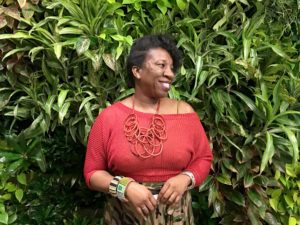How many sexual predators, victims of abuse and hashtags does it take before society comes to terms with “locker room talk” and the harm it causes?
Sexual harassment and assault aren’t just “women’s issues,” they are a community problem. Women are not the only victims, and men are not the only perpetrators.
Most studies indicate one in four women have been sexually assaulted, and one in 10 men. Break those statistics down further and you find that minority groups — women of color and transexuals, specifically — appear to be especially targeted for abuse.
This week those who have purposefully buried their head in the sand were given another opportunity to observe the carnage as women and men told their stories. And, just like so many other times in recent history, those stories were the result of a social media movement.
Actress Alyssa Milano, at the suggestion of a friend, unwittingly co-opted a decade-old “Me, Too” campaign by asking those on Twitter “who have been sexually harassed or assaulted” to use the two words as a status update.
“We might give people a sense of the magnitude of the problem,” Milano wrote on Sunday. Tens of millions across multiple social media networks have since answered the call by using the #MeToo hashtag.
Some men have drafted or signed on to pledges. Others are proclaiming #HowIWillChange or making #IHave public confessions.
But it all looks a little too familiar to a few of my friends who are survivors of sexual assault or rape.
“Why are we doing this again? How many times do those who have been hurt need to recount and relive the experience before something changes?” asked one of those friends.
And, let’s face it, campaigns intended to draw awareness to the prevalence of harassment and violence have existed from the first days of social media.

The original “Me, Too” movement — intended, according it its founder Tarana Burke, to unify those victimized by sexual violence, especially women of color — used a MySpace page to disseminate its message.
With the advent of Twitter, hashtags not too different from #MeToo have been used by many organizations and organic movements to pull people together. For instance, since 2012, we’ve been tweeting and facebooking about how we won’t stand for more sexual violence by using the #NoMore hashtag.
Three years ago, in the wake of the Santa Barbara mass shooting, I wrote about and participated in the #YesAllWomen hashtag movement, which highlighted actions women routinely take to stay safe that men rarely consider.
That same year a California group began using #AlcoholIsNotConsent as part of an awareness and photography series.
Even a partial list of similar hashtags is long — #YouOKSis #RapeCultureIsWhen #MooreAndMe #EverydaySexism #PutTheNailInIt #WhyIStayed #Consent #AllMenCan #ToTheGirls #HimThough #TakeBackTheNight #IBelieveHer #WhyIDidntReport #TheEmptyChair — and grows further when related conversations about sexism and violence are added to the mix.
“What I really worry about are those who may feel pressured to share their stories for whatever reason. They put it out there and then, a week or so later, the national conversation has moved on. But that one person still is trying to cope with what they’ve said and the memories typing it all out has produced,” said another friend who still has nightmares about an abusive relationship that ended six years ago.
While there has been a recent uptick in calls to local hotlines that deal specifically with rape and sexual assault, organizations that field those calls can’t say with certainty that the increase is directly related to the #MeToo movement. This time of year, when students return to campuses, there is typically an upswing in activity.
More generalized crisis lines have not experienced any recent increases in calls relating to sexual assault. Organizers say that could be because there isn’t a current need, or because people are seeking help from hotlines devoted to helping those types of victims.
“I wonder what the landscape will be two weeks from now, when discussions of #MeToo are no longer on the cable news channel or in the headlines,” my friend said when I told her what I’d learned.
It’s a valid question since we know calls for help increased when headlines related to the 2016 election focused on sexual harassment and assault, a phenomenon hotline organizers referred to as the “Trump Bump.”
“I’m miserable with it all over again,” she said, explaining how she’s taking a sabbatical from social media, but can’t escape the headlines.
And the worst part is, based on decades of awareness campaigns, #MeToo may help women identify other women, help them understand they aren’t alone, and/or decrease the stigma of being a victim of a sex crime, but it won’t change the underlying culture that nurtures and protects sexual predators.
Online conversations have provided a foundation, but we must build upon it in our individual towns, neighborhoods and families. Over the next few weeks, as part of this column, I’m going to explore those possibilities.
This column by Lynda Waddington originally published in The Gazette on Oct. 22, 2017. Photo credit: @strangebirdproductions
